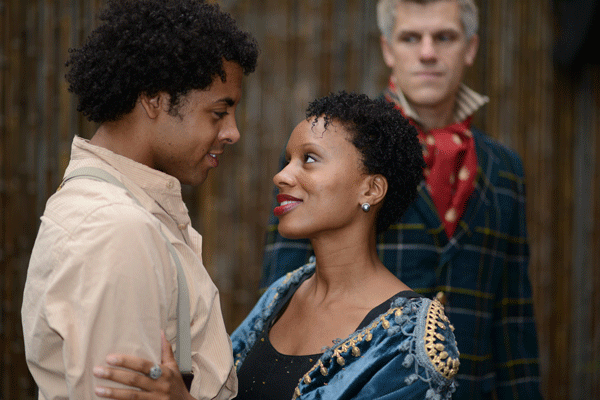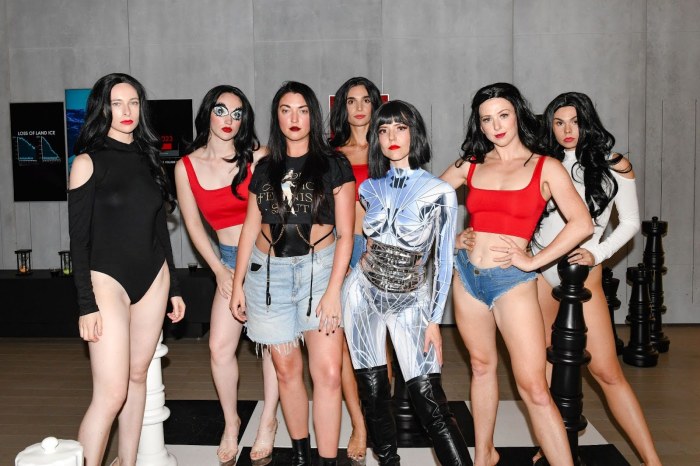
Kirwan explores the ‘coupled together unwanteds’
BY JERRY TALLMER | Two unforgettable culture shocks experienced by an otherwise reasonably sophisticated American male whose mother always wanted him to write under the good WASP name Roger Maxwell:
Shock A: The railroad station in Washington, D.C., democracy’s capital, circa 1935, where New York school kid Roger Maxwell (age 14 or 15) has arrived — hot, tired and very thirsty. Spots a couple of drinking fountains at the far end of this vast marble space. Walks up to those spigots, lugging his gear, until he can read the words — two different words — inscribed above each of them. On the right, “WHITE.” On the left, “COLORED.” Democracy! Fifty-two years after Gettysburg.
Shock B: London, England, summer of 1964. First time Roger Maxwell, then age 43, has ever been in this most nourishing of great cities. Goes for a stroll in the lower-middle-class neighborhood where he is staying. Sees sign after sign after sign purveying “Room to Let.” And under that, again and again and again: “No blacks or Irish need apply.”
The coupled-together unwanteds. The despised and undesired. What could say it any clearer than that? No blacks or Irish need apply. Right there, in London, in 1964, 48 years after the 1916 Easter rebellion and seizure of the Dublin Post Office — 101 years after 1863 and Gettysburg, an even 100 years after the 1864 death (at 37, to poverty, booze and starvation) of that greatest of American songwriter-poets: Stephen Collins Foster.
“Beautiful Dreamer” — try that for size. Or “Oh! Susanna.” Or “Swanee River.” Or “My Old Kentucky Home.” Or “Old Black Joe.” Or “Camptown Races.” Or “Jeanie With the Light Brown Hair.” Or “Hard Times Come Again No More.”
Not Charles Dickens’s “Hard Times.” Not Studs Terkel’s “Hard Times.” But white and black America’s hard times, in and around the Civil War era’s slum-ridden, crime-ridden Five Points intersection of Downtown Manhattan, near where a soft-spoken, fair-haired, ruddy-complexioned, bespectacled Irish-born singer, composer, musician, novelist and playwright named Larry Kirwan makes his home just off Canal Street in our own day.
You may know Kirwan from his popular Irish rock band, Black 47 — a moniker which has to do, he says, “not with color but with the mood.” You may have known him from Malachy McCourt’s Bells of Hell, 13th Street and Sixth Avenue. You may know him from CBGB’s. You may more recently know Kirwan from “Blood,” a play of his about that 1916 rebellion in Dublin.
A terrible beauty was born?
“Exactly,” says Kirwan.
“Blood” was done last March at the little lower-cased cell theater on West 23rd Street, where Kirwan’s “Hard Times” — an interracial musical — will be playing.
It is set in a saloon in Five Points, owned and operated by Nelly Blythe (actress Almeria Campbell), a hearty, healthy no-nonsense Negro woman whose current lover, Michael Jenkins (Phillip Callen), is an Irish-American ideologue of the backward-facing immigrant-hating Know Nothing white-supremacy political party, and if you see any resemblance to anything anno domini USA 2012, well, so be it.
Blacks and Irish not wanted. Blacks not wanted even by the Irish — the new immigrants — who saw the blacks flooding up from the South as taking the Irish jobs away and being freed to do so — freed as human beings, or at least three-fifths human beings — by Abraham Lincoln’s Civil War that white Irishmen are being drafted willy-nilly to fight and die in by the thousands.
Of course, you could buy your way out of the draft for $300 — but who had $300?
The great Irish Potato Famine had been 1845-47; the big influx of Irish to America had been 1845-51.
“When the men went west,” says Kirwan, “their women took up with black men.”
That didn’t add to peace. “It was called amalgamation,” Kirwan says wryly. “There’s been a lot of calcification over what happened in those years.”
What is now called tap dancing was the product of another amalgamation — Irish step-dancing and black shuffle.
Yes, Kirwan has been to Gettysburg — as has our friend Maxwell (twice). “You kind of get the enormity of it, and of the Draft Riots,” says Kirwan.
On July 13, 1863, one week after the high-water-mark of the Bloody Angle at Gettysburg, all hell broke loose in the Irish-fireball Draft Riots that swept New York City and particularly the Five Points dynamite keg.
Kirwan’s “Hard Times” takes place on that day, and opens with Owen Duignan (John Charles McLaughlin), a young Irishman, dancing and singing in Nelly Blythe’s saloon to Foster’s “Camptown Races” — a white man in the requisite blackface for that sort of song in that era — and hating having to do so. Even Thomas Jefferson, a young black dancer (Stephane Duret), has to wear blackface! It’s the convention. “Nobody would pay just to see an Irishman on stage.”
No, Foster was not black. He just learned from gospel and wrote black and sang black when he wanted to.
Nelly Blythe’s saloon becomes a refuge for white and black when the rioters and counter-rioters set fire to much of the city, including the Colored Children’s Orphanage Uptown. In all, the deaths were more than a hundred, and the numbers could have been much worse if President Lincoln hadn’t sent troops of the Army of the Potomac up from Gettysburg to restore peace in New York.
“When the riots started the mixed-race families had to either move out or break up. Things didn’t come together again until the 1960s,” says Kirwan.
But are things coming apart again in this 2012 season of “Hate the President Just Because He’s Black?”
Foster could turn that into heartbreaking song, but he is no longer with us. Some of him is, though, at the cell on West 23rd Street.
Kirwan was born in Wexford, a seaport on the southeast lower corner of Ireland. His father was in the Merchant Marine. “It was the Irish sailors, by the way, who brought blackface to Ireland.”
Kirwan got to New York in the mid-1970s, singing all the way (not in blackface). He has two sons in their 20s and a choreographer/dance-teacher wife named June Anderson.
“Hard Times” is directed by Kira Simring, and Jed Peterson plays Stephen Foster, who sang and wrote:
Whenever times are troubled
And the truth tears me apart
I gain my strength from you
And the courage you impart
Dear friends and gentle hearts
Dear friends and gentle hearts.
At the drinking fountain where anyone, white or colored, can apply.
HARD TIMES
Written by Larry Kirwan
Music by Stephen Foster and Larry Kirwan
Directed by Kira Simring
At the cell (338 W. 23rd St.
btw. Eighth & Ninth Aves.)
Sept. 13-30
For tickets ($18) or more info, call 1-800-838-3006 or visit thecelltheatre.org

















